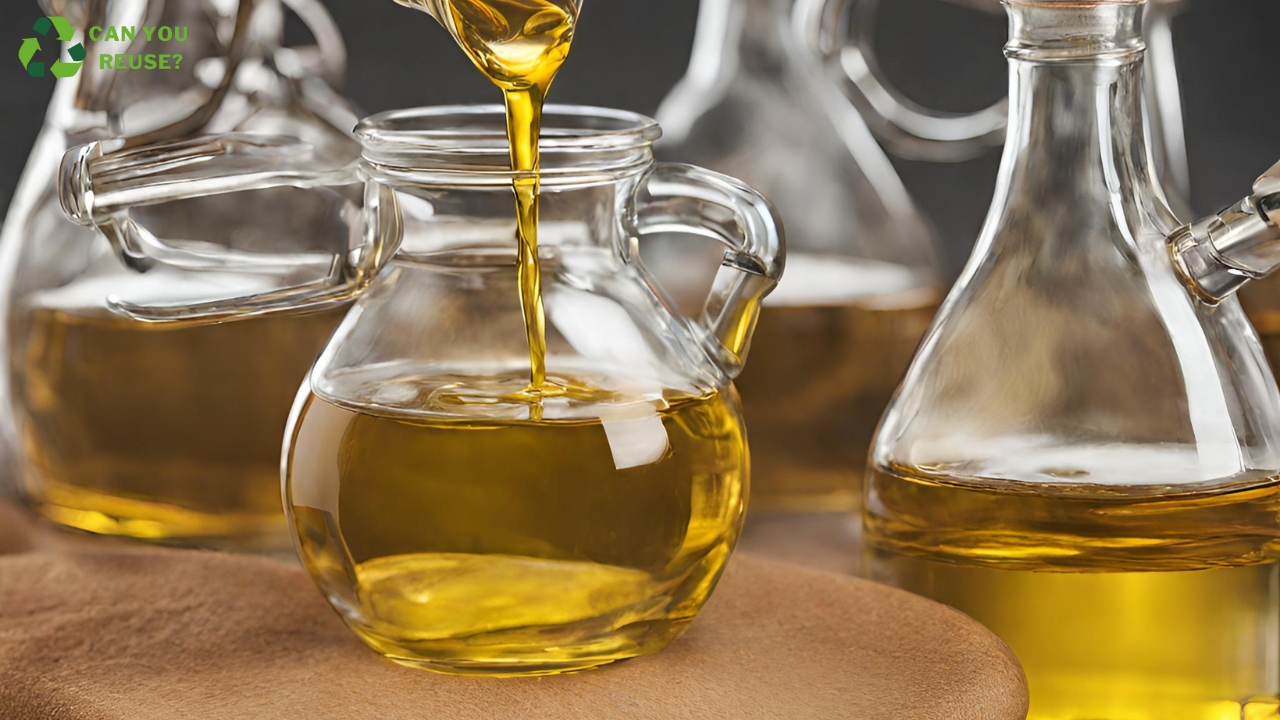Yes, you can reuse frying oil. It’s a great way to minimize waste and save money. However, there are some important considerations to keep in mind to ensure the oil remains safe and effective for frying.
How to Reuse Frying Oil
Reusing frying oil is a straightforward process. After you’re done frying, let the oil cool completely. Then, strain it using a cheesecloth or a fine mesh strainer into a clean vessel, such as a glass jar or the original container it came in. Store the strained oil in a sealed, light-proof container in a cool, dark place.
How Many Times Can You Reuse Frying Oil?
The number of times you can reuse frying oil varies. It can range from two to eight times, depending on the type of oil, what you’re frying in it, and how well you’ve strained it

However, there’s no hard and fast rule for when oil is no longer suitable for frying. Instead, pay attention to your oil and detect any changes. If it’s become dark or dirty, or if it’s smoking before it reaches frying temperature, it’s time to replace it.
The Impact of Reusing Frying Oil on Health
While reusing frying oil can be economical and environmentally friendly, it’s important to be aware of potential health implications. According to studies, reheating cooking oil can lead to the release of toxic substances and increase free radicals in the body, which can contribute to various health issues.
How to Dispose of Used Frying Oil
When it’s time to dispose of your used frying oil, don’t pour it down the drain as it can clog pipes and harm plants and animals. Instead, let the oil cool completely, strain it to remove any food particles, and pour it into a sealable container. You can then take or send the oil to a designated recycling centre.
Economic Benefits
Reusing frying oil can lead to cost savings for restaurants and households. Instead of purchasing new oil for each use, the same oil can be used multiple times, reducing the overall expenditure on cooking oil.
Additionally, restaurants can generate extra revenue by selling their used cooking oil to companies that purify and recycle it.
Environmental Benefits
Reusing frying oil can also have significant environmental benefits. When used cooking oil is recycled, it can be converted into biodiesel, a cleaner fuel source that reduces greenhouse gas emissions by 57-86%
This helps to mitigate the environmental impact of fossil fuels. Moreover, recycling used cooking oil prevents it from being disposed of improperly, which can lead to clogged pipes and sewer lines.However, it’s important to note that reusing frying oil should be done with caution due to potential health risks. Repeatedly reheating cooking oil can lead to the release of toxic substances and free radicals, which can cause health issues such as oxidative stress, hypertension, atherosclerosis, and an increase in bad cholesterol levels. Therefore, it’s recommended to limit the number of times oil is reheated and reused, and to properly strain and store the oil between uses.
FAQs
Q: Can I mix different types of oil when reusing?
A: Yes, you can mix different types of oil. However, be aware that each type of oil has a specific smoking point, which is the temperature where the oil starts breaking down. Therefore, it’s best to mix oils with similar smoking points
Q: Can I reuse the oil that I’ve used to fry fish?
A: Yes, but be aware that frying certain foods, like fish, can leave a strong flavor in the oil that may transfer to other foods. If you plan to fry delicate items, you may want to use fresh oil.
Q: How long can I store used frying oil?
A: Used frying oil can be stored in a sealed and light-proof container for up to 3 months. For best quality, refrigerate the used frying oil that you want to use again.
Q: Can I use reused oil for other types of cooking?
A: Yes, you can use your leftover fryer oil for other types of cooking. Feel free to pull tablespoons from the container, as you would any fresh oil. However, be aware of the flavor that the oil may have taken on from the foods you’ve fried in it.In conclusion, reusing frying oil is a practical and economical practice, but it’s important to do it correctly to ensure the oil remains safe and effective for frying. Always pay attention to the condition of your oil and replace it when necessary.


Leave a Reply